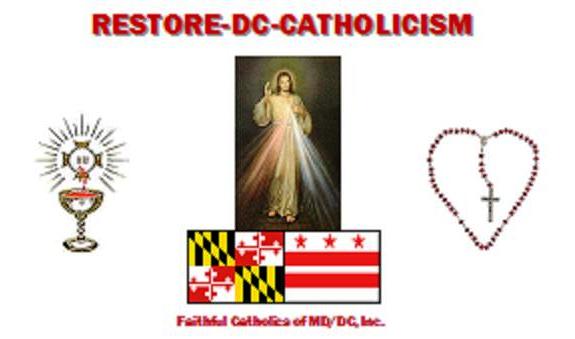Let's face some unpleasant facts now, shall we? When Benedict ascended to the papal throne in 2005, he asked people to "pray for me that I may not flee for fear of the wolves." He had some knowledge of what progressive elements in the Vatican could do. Yet he took the papal oath anyway. Included in that oath is the promise to "keep without sacrifice to itself the discipline and the rite of the Church. I will put outside the Church anyone who dares to go against this oath.." He did do that, most notably with his July 2007 Summorum Pontificum that took the Tridentine Mass out of the evil clutches of progressive bishops.
However, less than eight years later, that changed. He announced his rather odd and frankly, canonically irregular (if not impossible) resignation from the papacy. Looking back, I think we can all see the evil hand of the Sankt Gallen mafia driving that whole thing. Maybe we couldn't see it at the time, but no doubt Benedict did. How could have not have known what was to follow after he left Peter's chair? Perhaps he wasn't privy to all the details of their plans, but he must have known that they had their long knives out for Holy Mother Church. He did not remain at his post to guard the Deposit of Faith. Some argue that we don't know Benedict's real motives for so doing. Be that as it may, could any well-intentioned motive have even mattered?
Some are now saying that because the papacy is now "no longer bifurcated" that Francis is now pope without a doubt. Hold up a minute. There remains the matter of compromised elections, that would render a papal election to be invalid. I touched upon that in a post from seven years ago. One correction to that post; whereas I assumed Francis' election was valid, I no longer hold that assumption. I simply don't know.
The late pope will be buried later this week. We must pray for his soul and for Holy Mother Church. Here is a take on the matter from Michael Matt.

I always appreciate your common sense. It is sorely lacking among many Catholics today who jump on whatever post-Vatican II nonsense is on the table. Let's face it. Every Vatican II pope has to be made a saint lickity split to canonize the council. No doubt the masons at the Vatican are already preparing the documents to canonize Francis when he dies. I certainly casts doubt on the infallibility of the canonization process which changed post V-II:
ReplyDelete"The Processes have gone through several revisions and refinements over the centuries, including two recent ones, under Pope Paul VI in 1969 and under Pope John Paul II in 1983. Included in Pope Paul's reforms were the consolidation of the processes into a single Cause for Canonization. Notable in the reform of Pope John Paul II was the elimination of the adversarial role of the Devil's Advocate, though the office of the Promoter of the Faith remains to guard the best interests of the Church. Instead of a trial of the candidate the process is now the gathering and thorough review of all relevant historical and personal information that bears on the life and virtues of the Servant of God." [Source - EWTN]
The Cardinals accepted the resignation. But was the resignation canonically valid? Benedict attempted to split the papal office. Was that valid? Work with what we have? Just what precisely do we have? I think we have a friggin mess on our hands. Wishing for a "simplest answer" doesn't mean we'll have one. We have to accept that, lest we veer into being simplistic in our approach to what is a convoluted disaster. I don't know how Benedict could not have foreseen this: another reason why not to rush towards canonization.
ReplyDeleteI'm seeing the idea crop up here and there that perhaps Benedict was pope until he died, but now Bergoglio is pope. This is monstrous. "Anti-pope" is not an "office" in the Church--complete with right of succession!
ReplyDelete